Elections
Latest

Google bans political ad targeting by affiliation and voter records
Google is the latest internet giant to rethink its approach to political ads. The company is limiting the targeting options for election ads to age, gender and general location. US advertisers will no longer be allowed to target based on political leanings or public voting records, for example. The new strategy will take effect in the UK next week (just before the country's General Election), in the EU by the end of 2019, and all other countries by January 6th, 2020.
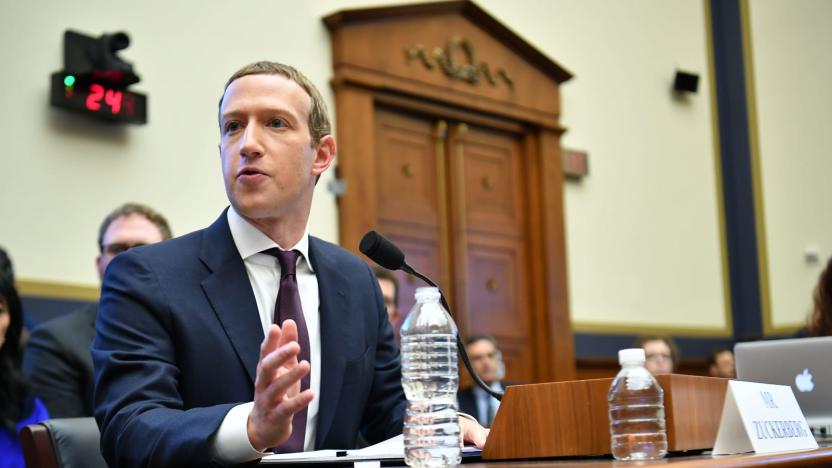
Facebook will let politicians run false ads during UK elections
Facebook's policy of allowing politicians to run false ads is going to get tested in short order. CNN Business has confirmed that the social network won't fact-check candidates' ads in the weeks ahead of the UK election on December 12th. It will bar candidates from linking to debunked or pro-violence material, and will still scrutinize groups like Leave.EU, but voters will have to rely on skepticism beyond that.

Microsoft: Iranian cyberattack targeted a US presidential campaign
Iran has apparently been engaged in a large-scale cyberattack bent on compromising American politics. Microsoft reported that Phosphorous, a known group it believes is linked to the Iranian government, attacked 241 email accounts in a 30-day period between August and September, including those for a US presidential campaign as well as current and former US officials, journalists covering world politics as well as "prominent" expatriate Iranians. Four of these accounts were compromised, though this didn't include the presidential run or any officials.
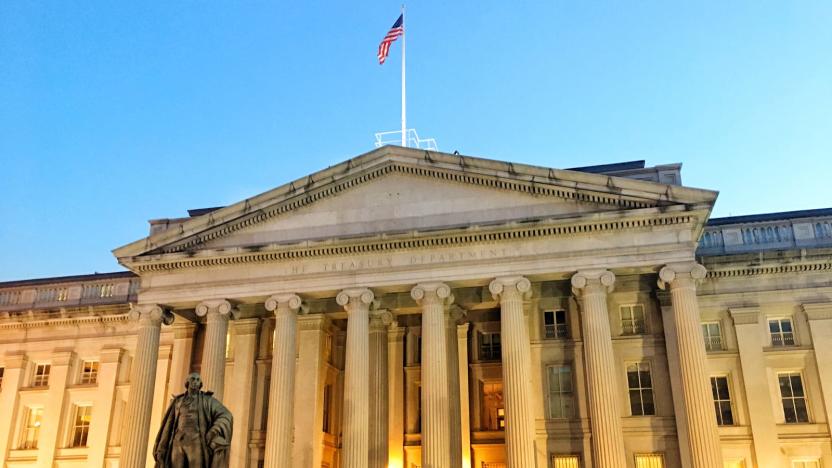
US sanctions two Russians for meddling in 2018 midterm elections
Today, the US Treasury sanctioned two Russian nationals accused of working for the Internet Research Agency (IRA) and attempting to meddle in the 2018 US midterm elections. The US has already sanction the IRA and a handful of its members. Now, Igor Nesterov, 34, and Denis Kuzmin, 28, have been added to the list.

State Department revives investigation of Clinton's private emails
Hillary Clinton's private email server may once again be a hot-button issue three years after the FBI said it wouldn't press charges. Washington Post sources claimed State Department investigators have contacted "as many as" 130 officials to let them know that emails sent to Clinton's private inbox have been retroactively classified, making them possible security violations when they weren't at the time they were sent. The Department had started reaching out roughly a year and a half ago, according to the report, but fell quiet before resuming in August.

Microsoft makes its open-source secure voting software available to all
Back in May Microsoft announced its plans to make the business of voting more secure, verifiable and efficient. Enter ElectionGuard, which, after various demonstrations over the summer, is now available on GitHub, open to use by any tech supplier looking for what Microsoft calls a more trustworthy voting system.
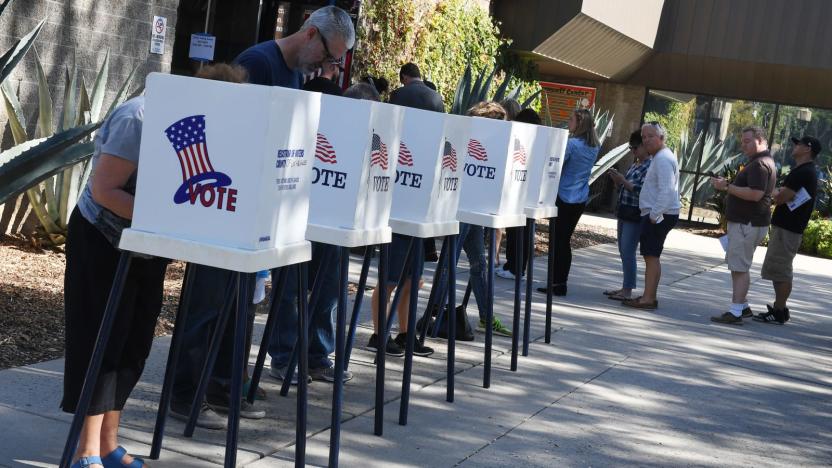
Facebook, Google meet intelligence agencies to talk 2020 election security
Both intelligence agencies and tech companies are gearing up to secure the 2020 US election, and that apparently includes some heart-to-heart conversations between the two. Bloomberg sources have learned that Facebook, Google, Microsoft and Twitter are meeting members of the FBI, Homeland Security and the Office of the Director of National Intelligence to discuss the industry's security strategy. This reportedly includes plans for tighter coordination between tech and government, as well as curbing disinformation campaigns.

Facebook once again tightens requirements for US political advertisers
Facebook is bracing itself for the 2020 US election by further toughening its requirements for political ads. The social network now requires more information from advertisers before it approves their disclaimers, including a tax-registered organization ID number, a Federal Election Commission ID number and a government website domain (either .gov or .mil). If they're a local politician or business that wants to run ads for social issues, they'll have to provide verifiable address, contact and website info or else accept that they can't use a registered organization's name in disclaimers.
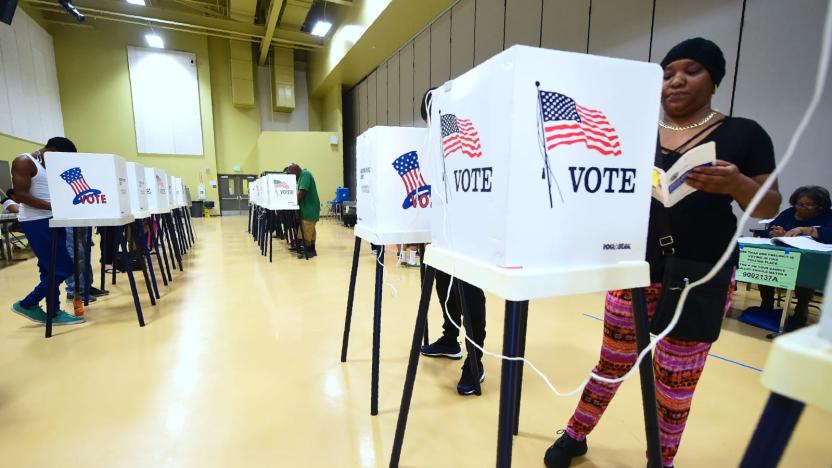
US officials brace for ransomware attacks against election systems
It's no secret that many American officials are worried about hacks targeting the 2020 election, but there's one fear this time around that wasn't present in 2016: ransomware. Reuters has learned that Homeland Security's Cybersecurity Infrastructure Security Agency (CISA) is worried election databases could be targeted by the same kind of ransomware attacks that have plagued cities like Atlanta and Baltimore. Accordingly, it's teaming with election officials and relevant companies to both safeguard their databases and prepare responses for possible attacks.
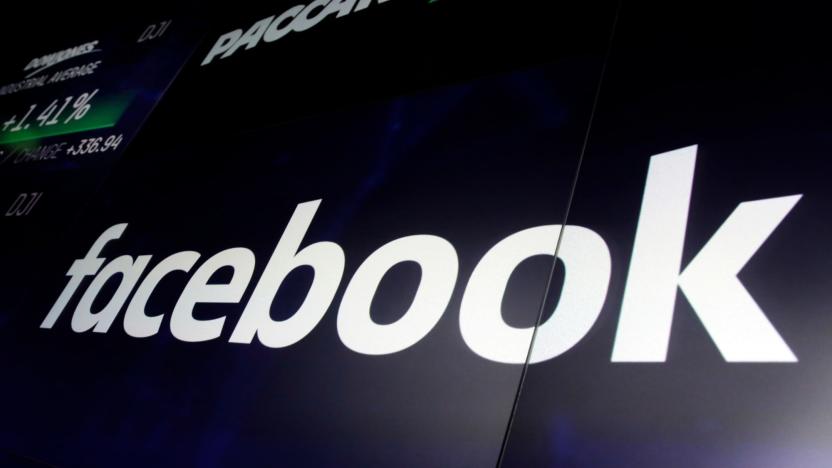
Facebook defends decision not to ban fake news from politicians
Facebook says it wasn't its job to stop fake news circulated by actual politicians in the months leading up to Australia's federal election. The nation's Labor Party suffered resounding losses this spring, which some are linking to the deluge of social media posts that falsely claimed that the party wanted to impose hefty "death taxes". In letters reviewed by Guardian Australia, Facebook vice-president Simon Milner told outgoing Labor Party secretary Noah Carroll that the misinformation didn't violate the platform's community standards.
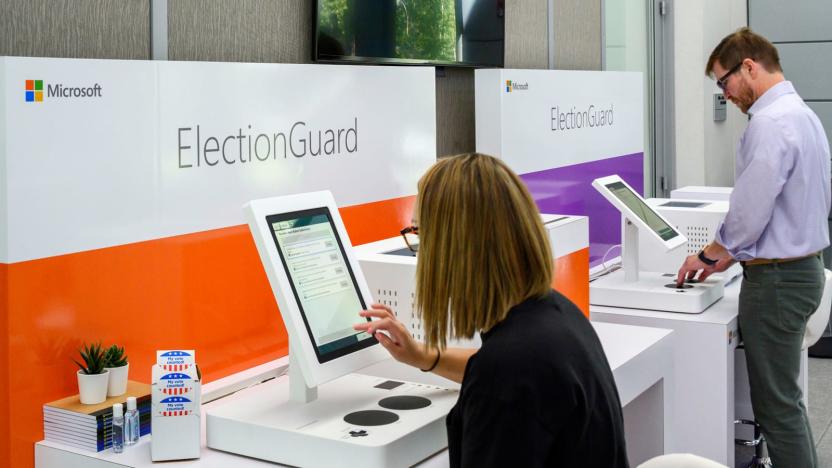
Microsoft demos its bid at creating 'secure' voting systems
Microsoft is keen to show that its election security system is more than just a theoretical exercise. The company has demonstrated the first voting system to use its ElectionGuard tech, promising a vote that's both easier and more trustworthy. The example hardware is pieced together from off-the-shelf parts and includes a Surface tablet (in a fiddle-free kiosk mode), an everyday printer and an Xbox Adaptive Controller to make voting more accessible. That's relatively unique in itself by proving that you can use regular components, but the software is ultimately what glues it all together.
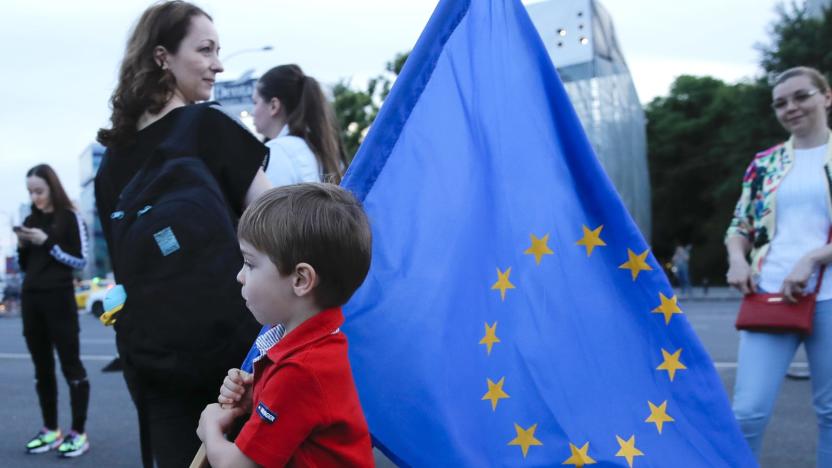
The EU's election interference alert system isn't working properly
The European Union was quick to report online interference in its recent elections, but the system designed to catch that interference apparently needs some improvement. The New York Times has learned through records and interviews that the EU's Rapid Alert System hasn't been very effective in aggregating meddling data or transmitting alerts. Most member states haven't contributed to its database, and what data is there tends to be a "mishmash" that may go unanalyzed. Disagreements over the seriousness of interference attempts have also led officials to avoid issuing alerts.

Major voting machine maker backs away from paperless models
Voting machine security is still a sore point, but at least some vendors are starting to change their tune. ES&S chief Tom Burt has declared that his company will "no longer sell" paperless voting machines as the "primary" voting device for a given jurisdiction. It's just too hard to conduct a "meaningful" audit of election results without a physical record, Burt said. He went so far as to ask the US Congress to mandate a paper record for all voters.

EU approves cyber-attack sanctions ahead of election
The European Union has agreed to an automatic set of sanctions to punish any future cyber attackers. Just a week ahead of the EU Parliament elections, officials in Brussels on Friday approved a cyber sanctions regime that would impose asset freezes and travel bans on individuals. While no specific targets have been named yet, the EU hopes the new system will make it easier for the 28 member nations to act quickly in the event of a cyber attack.
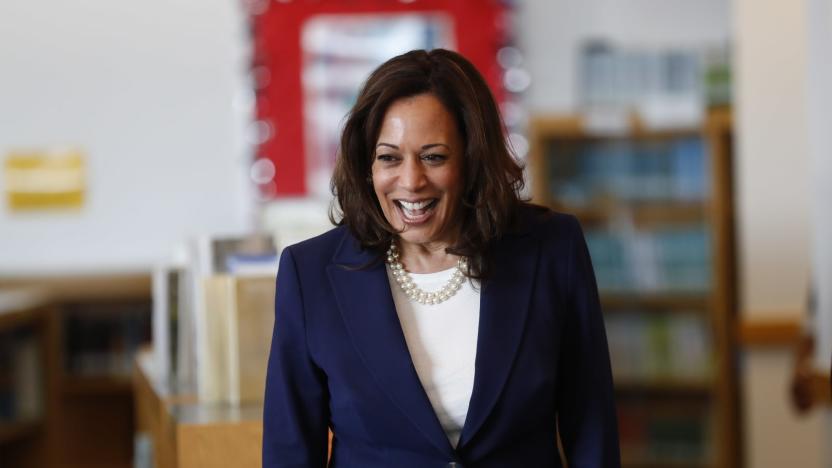
Kamala Harris sees Facebook as a 'utility' that might need breaking up
Senator Elizabeth Warren isn't the only major presidential candidate eyeing the possibility of breaking up Facebook. Fellow Senator Kamala Harris stated in a CNN interview that she believed the US should "seriously take a look" at splitting the social network. It's effectively an unregulated "utility," she argued -- when "very few people can get by" without using Facebook in some capacity, you have to treat it more like a vital service.
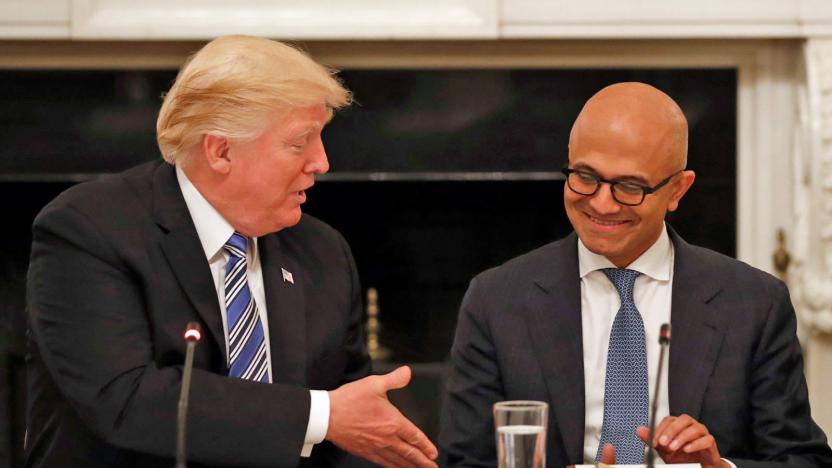
Microsoft wants to secure elections and political campaigns
Get the jokes about voting booths crashing left and right out of your system: Microsoft announced today that it's taking a few steps towards election security. First up is ElectionGuard, an open source software development kit that will offer public verifiability and other security measures for elections. Since it's open, Microsoft is hoping developers will integrate it into existing voting systems -- it's not trying to replace things that already work. Additionally, Microsoft says it'll offer "guidance and tools to build more accessible voting systems," though it didn't elaborate on specifics. Developers will be able to get their hands on ElectionGuard's SDK when it hits GitHub in the summer.
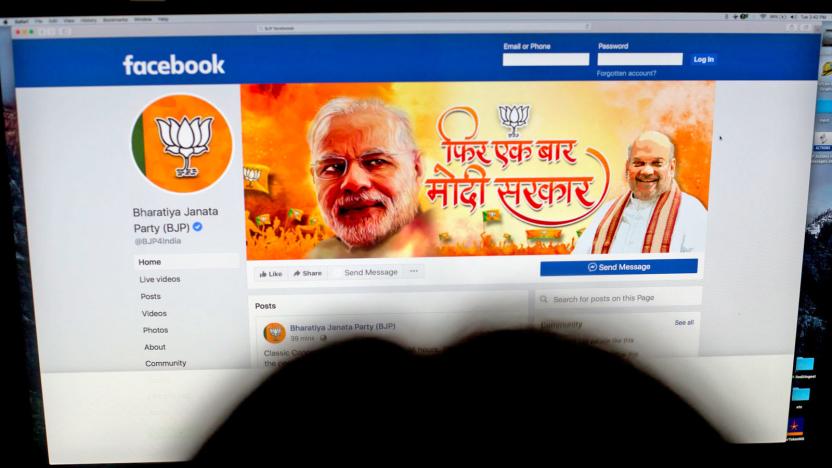
Facebook awards grants for social media and elections research
Facebook is making good on its promise to better understand the complicated role it plays in global politics. The social media giant announced the first recipients of a grant that will allow researchers access to its privacy-protected data for the study of social media's impact on elections. More than 60 researchers from 30 academic institutions from 11 countries were picked by an independent peer-review review board. Grantees will have access to an unprecedented amount of data from Facebook and Instagram for their research; a total of 6.9 billion page posts, 1.2 billion group posts, 11.2 million verified profile posts and 1.6 billion Instagram posts.

YouTube will label videos to help European users avoid fake news
Google has launched some new tools in a bid to fight misinformation about upcoming elections in Europe. A large part of that effort is focused on YouTube, where Google will launch publisher transparency labels in Europe, showing news sources which receive government or public funding. Those were unveiled in the US back in February, but had yet to arrive in the EU. "Our goal here is to equip you with more information to help you better understand the sources of news content that you choose to watch on YouTube," the company said.
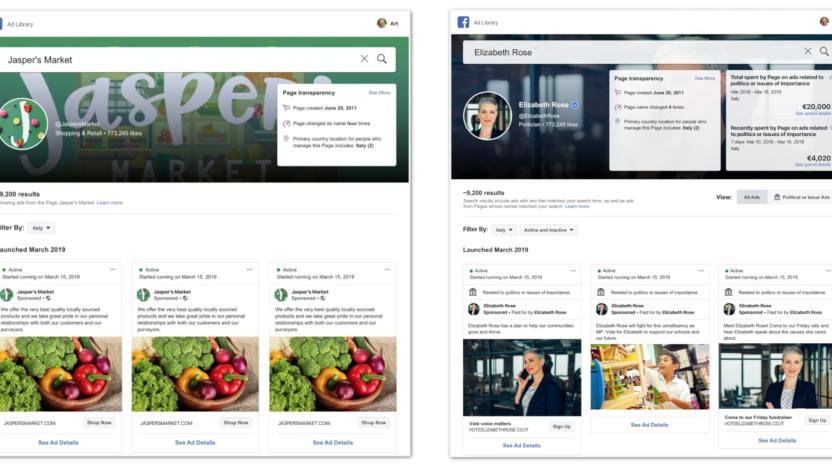
Facebook expands Ad Library and tightens ad rules ahead of EU elections
In an effort to prevent foreign interference yet again, Facebook is rolling out more stringent advertising rules in the EU ahead of the European Parliamentary elections. Similar to previous election rules enforced in the US and other locations, anyone who wants to buy political ads in the region must be authorized to run them. Facebook will require them to submit documents proving their identity and will also conduct technical checks to confirm their location, as well as to prevent bad actors from tricking the company. In addition, all political ads in the EU will be labeled with a "Paid for by" disclosure, so voters can clearly see who bought the ad and what their contact details are.

Evidence mounts that Russian hackers are trying to disrupt the EU elections
Russian hackers are targeting government systems ahead of the EU parliament election, according to cybersecurity company FireEye. The firm says that two state-sponsored hacking groups -- APT28 (aka Fancy Bear) and Sandworm -- have been sending out authentic-looking phishing emails to officials in a bid to get hold of government information.






